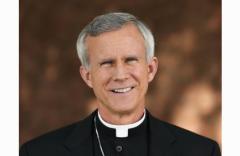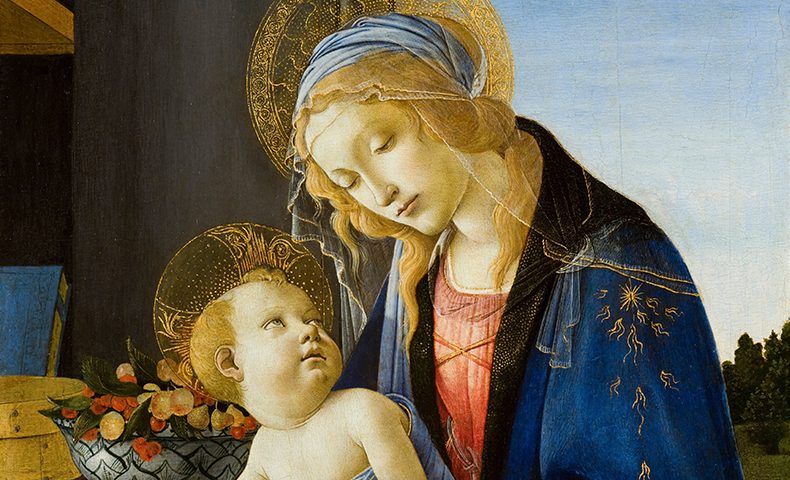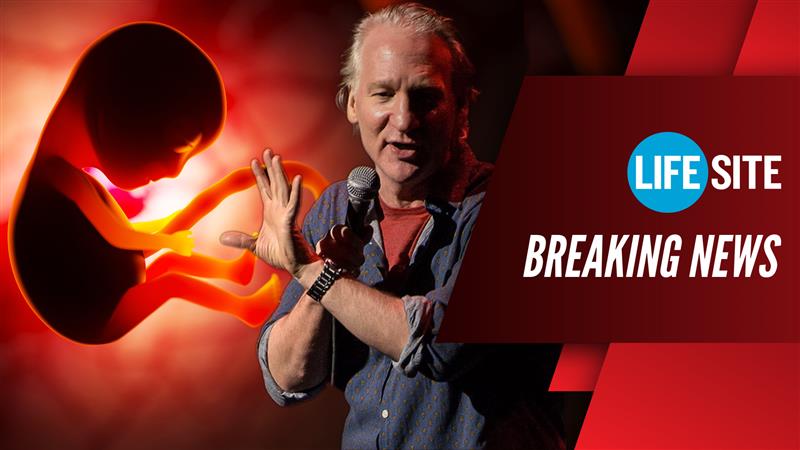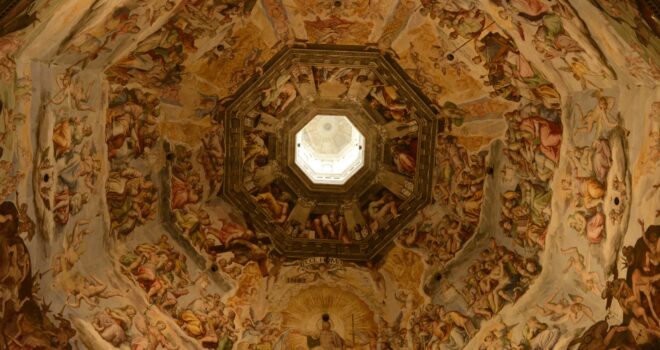By Most Rev. Joseph Strickland, The Wanderer, February 17, 2020
(Republished with permission of Mr. Joe Matt, The Wanderer)

Bishop Joseph Strickland. (Diocese of Tyler, Texas)
I write this column on the Feast of Our Lady of Lourdes, one of many Marian memorials in the liturgical calendar of the Roman Catholic Church. That is because Mary is, and always has been, deeply loved and honored by Catholic and Orthodox Christians. It was only in the aftermath of the Protestant Reformation, that this special love and honor began to diminish among some other Christians.
There are many reasons for this, but it is a sad turn of events. Because to love and honor the Mother of the Lord Jesus does not detract, but rather enhances, our love for her Son and Savior, Jesus Christ.
On the 102nd anniversary of the final apparition of our Lady of Fatima, October 13, 2019, I wrote this open letter to my brother and sister Christians in Tyler, Texas, who are not in full communion with the Catholic Church. Some are often confused concerning the special love which Catholic (and Orthodox Christians) have for Mary the Mother of the Lord. It was published in our local newspaper.
+ + +
Dear Fellow Christians,
I write to you as Bishop of the Roman Catholic Diocese of Tyler. Let me say from the outset that I write with great respect for every baptized Cristian who seeks to follow Jesus Christ. In fact, I am your brother in the One Lord, Jesus Christ. Although at times there are questions and some doubts, at least among some Christians, that Catholics are Christians, I can assure you, as one Catholic Bishop that I believe in Jesus Christ, the Son of God as my Lord and Savior who lived, died and rose for all humanity.
I believe my work as Bishop is to call all the baptized closer to Jesus Christ. And, to call all men and women to confess their sin and turn to Jesus Christ, accepting Him as their Lord and Savior.
In light of my profound responsibility as a Bishop, I want to address one aspect of Catholicism that often causes our fellow Christians to reject us as true brothers and sisters. This issue has to do with our Catholic devotion to the Blessed Virgin Mary. Let me begin by stating emphatically that as Catholics we do not worship Mary. She is not divine, and we believe she would be the first to correct any disciple who begins to treat her as divine. Mary, the Mother of God, is not God and, Catholics believe along with all Christians that worship of Mary or any other man or woman is blasphemy.
Having attempted to clarify this longstanding misconception regarding Mary, the mother of Jesus the Lord, let me now attempt to explain why Catholics hold Mary in such great esteem. I can state quite simply that Catholic devotion to Mary as the greatest woman who ever lived is based on what the Bible says about her. All four Gospels and the Acts of the Apostles speak of Mary in significant ways.
As Catholics we can summarize the message of these bible verses in this way, Mary is the first and greatest disciple of Jesus Christ. She responds “let it be done to me according to your word” when the angel Gabriel announces God’s plan for her to be the mother of His Son. This is the chief reason why we are devoted to Mary, because she models our call as disciples which we echo in the Lord’s Prayer “thy will be done.” The Catechism of the Catholic Church, in paragraphs 487 and 488, explains:
“What the Catholic faith believes about Mary is based on what it believes about Christ, and what it teaches about Mary illumines in turn its faith in Christ. ‘God sent forth his Son,’ but to prepare a body for him (Gal. 4:4, Heb. 10:5), he wanted the free cooperation of a creature. For this, from all eternity God chose for the mother of his Son a daughter of Israel, a young Jewish woman of Nazareth in Galilee, ‘a virgin betrothed to a man whose name was Joseph, of the house of David; and the virgin’s name was Mary’ (Luke 1:26-27): The Father of mercies willed that the Incarnation should be preceded by assent on the part of the predestined mother, so that just as a woman had a share in the coming of death, so also should a woman contribute to the coming of life (Lumen Gentium, nn. 56, 61).”
I hope you will accept this humble invitation to understand our Catholic devotion to Mary more clearly and consider how she can be a companion on your journey to deeper life in Jesus Christ. All the faithful Catholics of the Diocese of Tyler join me in extending a hand of fellowship and esteem for all of our brothers and sisters in Jesus Christ. May we seek Him, together.
One of the early Church Fathers, when the Church was undivided, the great Cappadocian, Gregory of Nyssa, writing in the fourth century, tells us — “What came about in bodily form in Mary, the fullness of the Godhead shining through Christ in the Blessed Virgin, takes place in a similar way in every soul that has been made pure. The Lord does not come in bodily form, for we no longer know Christ according to the flesh, but he dwells in us spiritually and the Father takes up his abode with him, the Gospel tells us. In this way the child Jesus is born in each one of us” (On Virginity).
May we join in professing our faith in Jesus Christ and bearing Him spiritually for a world which is waiting to be born anew in Him.
+ + +
I now write this column to my fellow Catholics. I have come to see, over years of ministry, first as a deacon, then as priest and bishop, that many Catholics do not understand what the Church teaches about Mary. So, let’s spend a little time reflecting on Mary, Mother of God and Mother of the Church, together. She is a gift to and for the whole Church.
Mary Is The Mother Of God
As Catholic Christians, one of the fundamental doctrines that has been handed down to us — and which I proudly defend as a part of the Deposit of Faith entrusted to me as a successor of the apostles — is that Mary is the Mother of God. The Catechism of the Catholic Church explains:
“Called in the Gospels ‘the mother of Jesus,’ Mary is acclaimed by Elizabeth, at the prompting of the Spirit and even before the birth of her son, as ‘the mother of my Lord.’ In fact, the One whom she conceived as man by the Holy Spirit, who truly became her Son according to the flesh, was none other than the Father’s eternal Son, the second person of the Holy Trinity. Hence the Church confesses that Mary is truly ‘Mother of God’ (Theotokos)” (CCC, nn. 495; Council of Ephesus, AD 431).
From antiquity, Mary has been called the Mother of God, or “God-Bearer.” The word in Greek is “Theotokos.” The term was a vital part of the professed faith and popular piety of the early first millennium church. It is used throughout the Church’s Liturgy, both Orthodox and Catholic. It lies at the heart of the Latin and the Eastern Church’s deep Marian piety and devotion.
This title was a response to early threats to “orthodoxy” — the word means right doctrine. To defend what is taught about Mary is to defend what is true about Jesus Christ. A pronouncement of an early Church Council, the Council of Ephesus in 431 AD, insisted: “If anyone does not confess that God is truly Emmanuel (God with us), and that on this account the holy virgin is the ‘Theotokos’ (for according to the flesh she gave birth to the word of God become flesh by birth) let him be anathema” (The Council of Ephesus, AD 431).
The council’s insistence on the use of the title “Mother of God” was an effort to preserve the teaching of the apostolic Church that Jesus Christ was both divine and human, that the two natures were united in His One Person. Not only was that teaching under an assault then, it is under an assault now, and failing to “get it right” has extraordinary implications. This early Church council doctrine was “Christological,” meaning that it had to do with the person of Jesus Christ.
One of the threats to the Deposit of Faith arising in the first three centuries of Christianity came from several errant teachings concerning this important truth. One was from a bishop of Constantinople named Nestorius. Some of his followers insisted on calling Mary only the “Mother of ‘the Christ’.” The Council of Ephesus insisted on the use of the title (in the Greek) “Theotokos” (“Mother of God” or “God-bearer”) to reaffirm the central truth of what occurred in the Incarnation of Jesus Christ. That the One who was conceived in the womb of the Virgin, the one whom she bore for the world, was true God and true man.
The Catechism of the Catholic Church treats this mystery of the faith with wonderful depth, citing biblical texts, the writings of the early fathers and the pronouncements of the early Church Councils in its Article 3, “He Was Conceived by the Power of the Holy Spirit, and Born of the Virgin Mary.”
I strongly suggest that my readers take the time to read it, prayerfully. Look up the Scripture references. Read the footnotes. However, the entire section is summarized in these sentences:
“The unique and altogether singular event of the Incarnation of the Son of God does not mean that Jesus Christ is part God and part man, nor does it imply that he is the result of a confused mixture of the divine and the human. He became truly man while remaining truly God. Jesus Christ is true God and true man” (CCC, n. 464).
During those first centuries, the Church had to defend and clarify this essential truth of faith against the heresies that falsified it. In the undivided Church, East and West, for the first 1,000 years, devotion to and love of Mary was a shining light, found in the profound prayers, reflections, and writings of the Christian Church. Anyone, taking the time to read the writings of the fathers, pronouncements of the early councils, and early liturgical prayers, will find that Mary had a central role in the faith, the piety, and the worship of the early undivided Christian Church.








